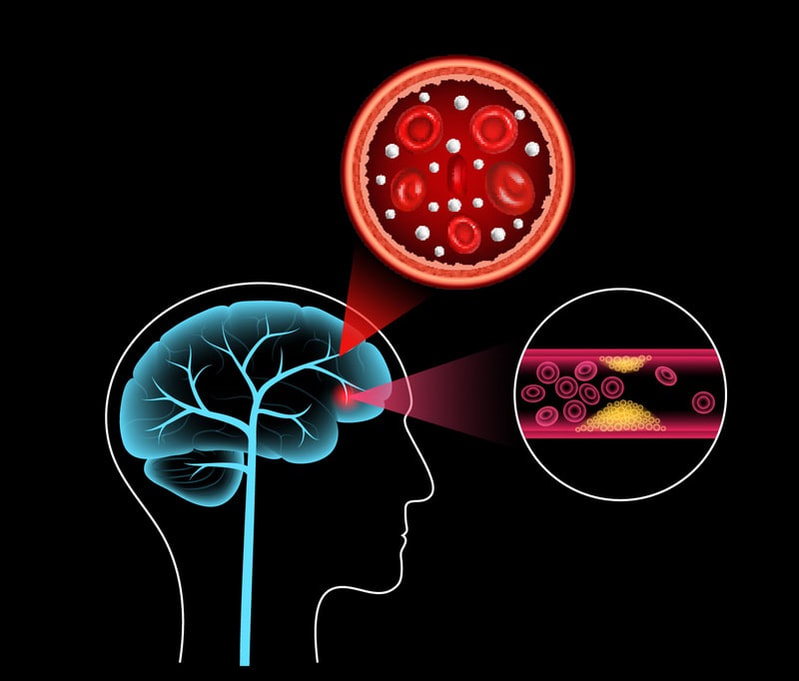And as our lifestyles and eating habits have shifted over the years away from freshly made meals at home to fast food and takeaway items, so have the issues resulting from these changes contributed to numerous health issues in all age groups. Now, a recent study published in the journal, Alzheimer’s & Dementia, show a commensurate link to the rates of dementia occurring in our later years that was reflected by cholesterol levels at age 35, specifically our high density lipoproteins (HDL) and blood glucose levels. Specifically, scientists looked for an association as to whether vascular and metabolic diseases measured in early adulthood are associated with Alzheimer's disease (AD) later in life. Using data from the longtime Framingham Heart Study, they found that:
What your blood profile measures. HDL cholesterol is often referred to as our “good” cholesterol as it carries cholesterol from other parts of your body back to your liver where the liver can then remove it from your body. Conversely, low-density lipoproteins, or “bad” cholesterol, can lead to a buildup of cholesterol in your arteries that is tied to cardiovascular disease and strokes.2 Total cholesterol numbers reflect both HDL and LDL numbers as well as triglycerides, which are not a type of cholesterol but are included in your lipoprotein blood profile. Triglycerides are the most common type of fat found in our body and are stored until we need to use them; however, high triglycerides typically are found along with high HDL and identified in conditions such as diabetes and metabolic syndrome.  How can we address the risk factors now? The study authors concluded that ‘"Intervention targeting cholesterol and glucose management starting in early adulthood can help maximize cognitive health in later life.” What this means is taking a healthy approach to our diets along with addressing modifiable risk factors, such as smoking cessation and giving up sedentary lifestyles in favor of more exercise. We must also look at the tenets of the Bredesen Protocol® to Alzheimer’s treatment, and one that we utilize in our practice, that is founded upon a comprehensive lifestyle and nutritional approach designed to reverse the cognitive decline of Alzheimer’s and related disorders, and prevent Alzheimer’s for those at risk. Additionally, it’s critical whenever possible to eat only non-GMO foods or products that haven’t been genetically modified in a way that does not occur naturally. There are several studies that show how GMO-containing foods may act as an environmental toxin in our system and actually alter our gut microbiome, which plays a key role in our health and affects such processes as metabolism and our immune system regulation. An impacted microbiome could then lead to the development of diseases including Alzheimer’s and Parkinson’s.3 Our blog library has several articles that look at the issues of high cholesterol, obesity, and other factors that are linked to incidence of dementia and other neurodegenerative disease: Dementia and vascular inflammation https://www.suzannegazdamd.com/blog/vascular-and-inflammatory-markers-of-dementia Addressing lipid markers https://www.suzannegazdamd.com/blog/addressing-lipid-markers-may-be-an-approach-to-brain-health Alzheimer’s as an autoimmune disease. https://www.suzannegazdamd.com/blog/is-alzheimers-an-autoimmune-disease Is Alzheimer’s preventable? https://www.suzannegazdamd.com/blog/what-if-alzheimers-is-preventable The prognosis for our youth’s health and our own medical futures can be significantly improved if take steps right NOW to change how and what we eat. We know, it’s not easy. But, if we are to enhance the potential outcome for the wellbeing of our neurological processes, it’s definitely an effort worth making. Let us know how we can help! In hope and healing, Dr. Suzanne Gazda References: 1 Zhang, X, Tong, T, Chang, A, et al. Midlife lipid and glucose levels are associated with Alzheimer's disease. Alzheimer's Dement. 2022; 1- 13. https://doi.org/10.1002/alz.12641 2 The American Heart Association https://www.heart.org/en/health-topics/cholesterol/about-cholesterol/what-your-cholesterol-levels-mean 3 Wang, H., Yang, F., Zhang, S. et al. Genetic and environmental factors in Alzheimer’s and Parkinson’s diseases and promising therapeutic intervention via fecal microbiota transplantation. npj Parkinsons Dis. 7, 70 (2021). https://doi.org/10.1038/s41531-021-00213-73
0 Comments
Your comment will be posted after it is approved.
Leave a Reply. |
AuthorDr. Suzanne Gazda, Integrative Neurology Archives
February 2024
Categories |

 RSS Feed
RSS Feed